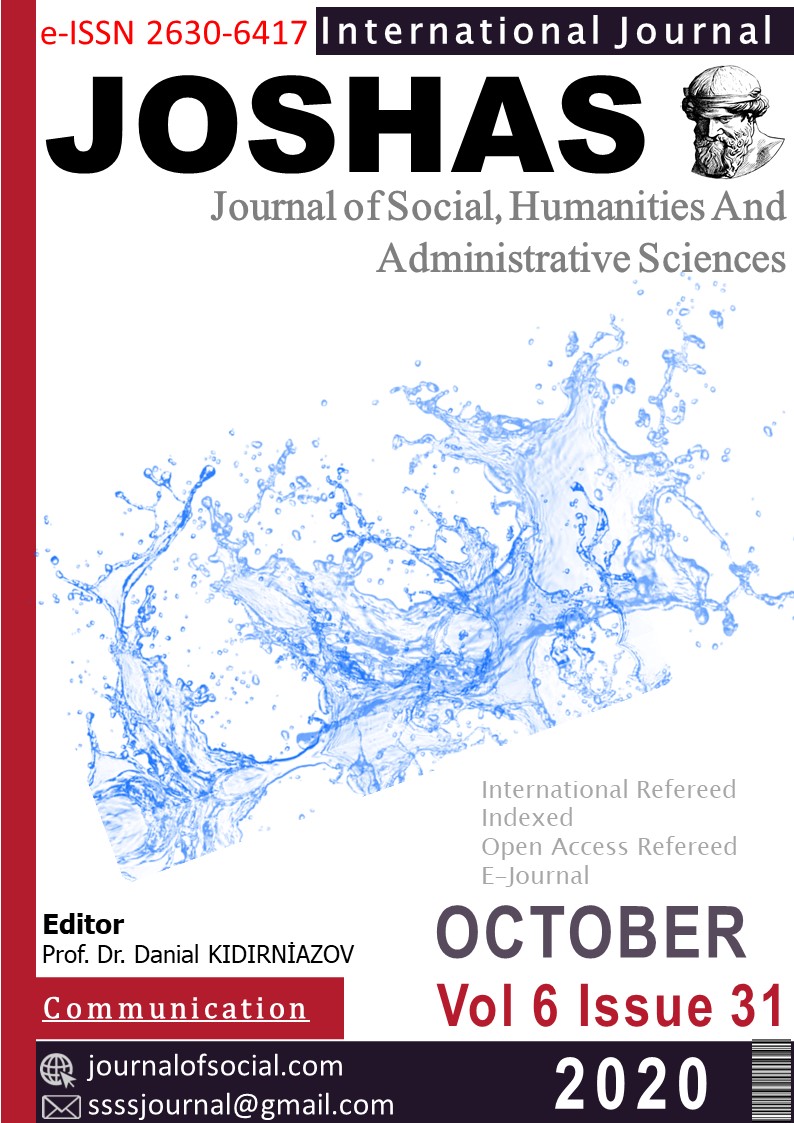Author :
Abstract
Doğal olmayan zeka olarak da bilinen yapay zeka (AI), süreçleri ve işlevleri uzman sistemler veya endüstriyel robotlarla değiştirerek insanlık için farklı ekonomik sektörlerde büyük bir ilerleme sunuyor. Bununla birlikte, yapay zekanın daha fazla iş yaratması mı yoksa tam tersi mi olduğu, insanlar için çalışma ortamında değer ve gelişme getirip getirmediği sorgulanmaktadır. Bu çalışmanın genel amacı, bu belgenin ana teması olarak yapay zeka ve endüstrilerdeki istihdam ve işsizlik üzerindeki tartışmalı etkisi üzerine ilgili araştırmaları sunmaktır. Bu aynı zamanda AI'nın tarihsel başlangıcını, farklı bakış açılarının analizini ve uygulamasını da gözden geçirir. Bu araştırma, akıllı sistemlerin açıklamasına, çeşitli ekonomik sektörlerde kullanımlarının temel nedenlerine, kuruluşlarda uygulanmasının risk ve avantajlarına, son yıllarda teknolojinin uygulanmasında en gelişmiş ekonomik sektörlere değinmektedir. on yıllardır, Peru ve dünyadaki son yıllarda evrimi. Sunulacak konunun alaka düzeyi, kar, maliyet azaltma, süreç verimliliği ve karlılıkta olumlu sonuçlar üreterek yapay zeka ve endüstrilerde kabulüdür. Ayrıca Chatbot kullanımı gibi sağladığı çeşitli araçların kullanımı; Bununla birlikte, şirketlerdeki uygulamasının, işgücü veya işten vazgeçme gibi olumsuz sonuçları da vardır ve bu nedenle tartışma yaratır. Araştırmanın geliştirilmesi için ilişkisel, tanımlayıcı ve kavramsal bir metodoloji kullanılmıştır. Yapay zekanın sosyal etkisinin çok büyük olacağı sonucuna varılacaktır. Ancak, net bir cevabı olmayan, kendimize toplumların neler olacağına hazırlıklı olup olmadıklarını ve şirketlerin 21. yüzyılda yapay zekanın insanın yaşam biçimini iyileştirmesi için hangi önlemleri alması gerektiğini sorduğumuz kilit sorular var.
Keywords
Abstract
Artificial intelligence (AI) also known as unnatural intelligence, presents a great advance for humanity in different economic sectors, by replacing processes and functions with expert systems or industrial robots. However, it is questioned whether AI brings value and development in the work environment for human beings, whether it creates more jobs or just the opposite. The general objective of this work is to present relevant research on artificial intelligence and its controversial impact on employment and unemployment in industries, as the central theme of this document. This also reviews the historical beginnings of AI, the analysis of the different perspectives and its application. This research addresses the explanation of intelligent systems, the main reasons for their use in various economic sectors, the risks and advantages of their application in organizations, the most developed economic sectors in the application of technology in recent years are specified. decades, as well as its evolution in recent years in Peru and the world. The relevance of the topic to be presented is AI and its acceptance in industries, by generating positive results in profits, cost reduction, process efficiencies and profitability. Also the use of the various tools that it provides, such as the use of Chatbots; However, there are also unfavorable consequences of its implementation in companies, such as dispensing with labor or jobs, thus generating controversy. For the development of the research, a correlational, descriptive and conceptual methodology was used. It will be concluded that the social impact of AI is going to be enormous. But there are still key questions without a clear answer, where we ask ourselves if societies are prepared for what is coming and what measures should companies take so that artificial intelligence improves the way of life of the human being in the 21st century.
